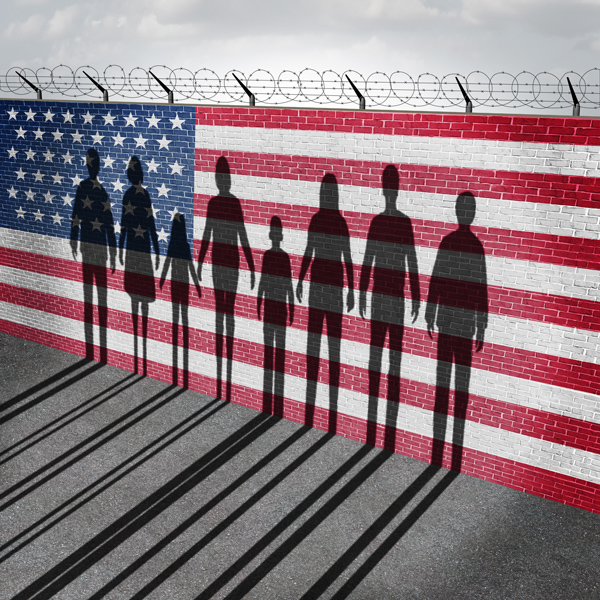More than 40 suits challenge immigration order and airport detentions; standing is an issue

More than 40 lawsuits have been filed to aid people whose entry into the United States was blocked because of President Donald Trump’s immigration order last Friday.
The cases are testing legal theories and seeking to overcome two potential hurdles, Law.com reports. One hurdle is standing and the other is courts’ reluctance to interfere with the president’s decisions on national security.
The executive order temporarily bans refugees and immigrants from seven majority-Muslim countries from entering the United States. Several federal judges have temporarily blocked parts of the order, including a federal judge in Detroit who ruled on Thursday, the Guardian reports. On Friday, federal judges in Boston and Seattle are hearing legal arguments in defense of the travel ban, the Associated Press reports.
Government lawyers have claimed judicial orders barring the government from blocking entry of the immigrants aren’t valid because the immigrant visas were already revoked. The administration revoked visas for those affected by the order on the same day it was issued.
Most of the cases have been habeas corpus petitions filed on behalf of immigrants detained or deported at U.S. airports, the Law.com article reports. Many of those cases have already been dismissed, and the likely reason is that the petitioner was released.
Several class actions have been filed by groups such as the American Civil Liberties Union, the Northwest Immigrant Rights Project, the Council on American-Islamic Relations and the American Immigration Council.
In an attempt to overcome standing problems, many of the actions have been brought by U.S. citizens who are suing on behalf of relatives being kept out of the United States. The suits claim the citizens are harmed by the order because it is tearing families apart.
Those with weaker legal standing include refugees who have never been in the United States and people on tourist visas, according to University of Texas law professor Stephen Vladeck, who spoke with AP.
Many of the class actions refer to Trump’s order as an “anti-Muslim ban,” likely in an effort to claim a class action is warranted because the policy affects all class members.
Five states are involved in litigation. Washington state filed its own lawsuit, which claims the executive order hurts the state’s economy and its technology industry, which depends on highly skilled workers with H-1B visas who work in the country. The state of Minnesota is joining Washington’s lawsuit, while three other states are joining other class actions.
Geoffrey Hoffman, director of the Immigration Clinic at the University of Houston Law Center, tells Law.com he believes the suits cite several grounds that could prove persuasive.
“Even though the president has broad powers, that power is not unlimited,” Hoffman said. “You have to keep in mind we still have limitations: the First Amendment, due process, equal protection, retroactivity—a lot of issues that I think can be brought to bear.”



